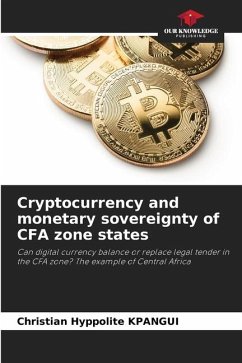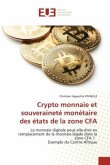The advent of crypto-currencies and digital currency issuers introduces a new component to the exercise of monetary sovereignty, which will be profoundly altered by the ability of crypto-currencies to undermine the influence of Central Banks. Crypto-currencies should lead to the further liberalization of an activity that was originally the preserve of the State through the Central Bank, and which is now open to commercial banks through the issuance of scriptural money. The new digital instruments are thus invading the sharing of seigniorage attached to the issue of money, inherent in the exercise of monetary sovereignty. At a time when the digital divide is widening, the irruption of blockchain technologies should lead us to reflect deeply on the model of monetary sovereignty under construction. This curiosity about the innovations of our time, as much as the fear of seeing the monetary sovereignty of states crumble in the face of a new technological disruption, led to the choiceof this study.
Bitte wählen Sie Ihr Anliegen aus.
Rechnungen
Retourenschein anfordern
Bestellstatus
Storno








